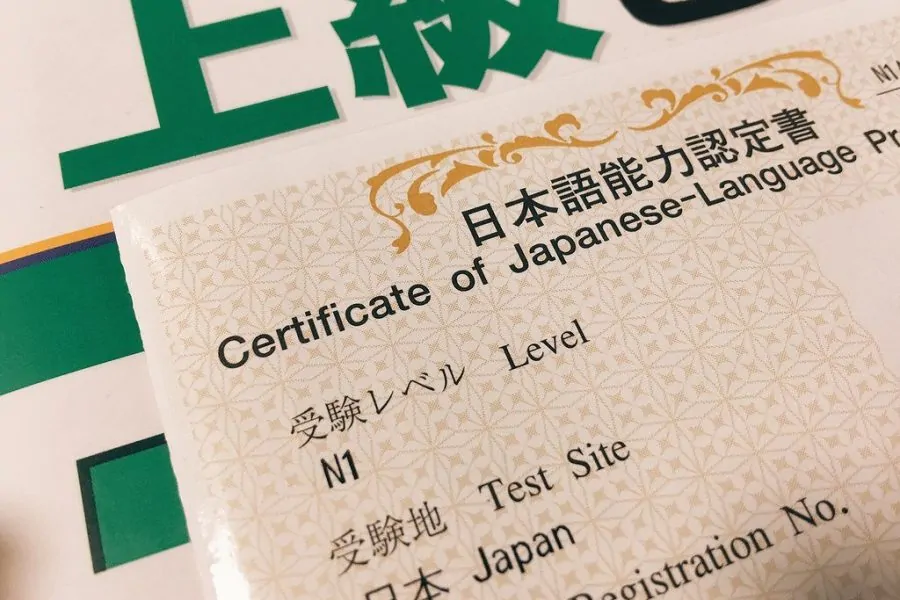Choosing to study abroad is an exciting and life-changing decision! As well as learning a new language and culture, you’ll be meeting people from all over the world and making lifelong friends. A student visa is required if you’re planning to study in Japan for more than three months. Like any immigration procedure, applying for a visa translates to gathering necessary documents and filling in paperwork, which can be time-consuming but is not an impossible task. The good news is that the Japanese student visa is one of the most accessible visas.
This comprehensive guide will show you how to apply for a student visa and start your journey abroad in Japan!
What Documents Will You Need to Apply For a Student Visa in Japan?
At a glance, these are the documents you’ll need to apply for a student visa. There may be some additional documents required depending on the country:
- Passport (valid and up to date)
- Certificate of Eligibility issued by the host institution (the original and a copy)
- ID Photos (passport-size)
- Visa Application Form (carefully filled out)
- School Diploma and Transcripts
- Bank Statements (showing at around ¥3,000,000) or a Letter of Sponsorship
- Certificate of Admission (issued by the school)
How To Apply for a Student Visa in Japan
It’s vital to remember that this is an immigration procedure, meaning details are everything. Nothing can be left out, or there’ll be a chance that your application may be declined. The whole process can be broken down into four simple steps.
- Choose a School
- Prepare all the documents for the Certificate of Eligibility
- Pay the School Fees
- Apply at the Japanese Embassy in your country
1) Choose A Language School or a University
One of the primary documents required for a student visa is the Certificate of Eligibility (CoE). A regional immigration authority issues a Certificate of Eligibility under the jurisdiction of the Ministry of Justice. In a student’s case, it acts as a preliminary visa screening process. It serves as evidence that the applicant fulfills various conditions of the Immigration Control Act.
So, the first step to applying for a visa is to find a Japanese language school or a university in Japan that will act as your sponsor. Once admitted, you will have to prepare some documents for the CoE and send them to the school.
Not All Japanese Schools Can Get a Certificate of Eligibility. Although it’s possible to still apply for a student visa without this certificate, a large number of documents will need to be submitted, and the processing time will take several more months since the visa application documents will have to be sent to the Ministry of Justice via the Ministry of Foreign Affairs in Japan for examination. Be careful in choosing a school that can obtain a Certificate of Eligibility for you, as not all of them are eligible.
Do not apply to more than one school. Only one school can apply for a Certificate of Eligibility on your behalf. Applicants who have already started using multiple schools, you should inform them as soon as possible, or you’ll risk having your application for the CoE rejected.
2) Prepare all the documents for the Certificate of Eligibility
You will need the following documents to send to your chosen school:
- Student Application Form – This will be a form issued by the school. Often there will be a section for applicants to explain why they are interested in coming to Japan. The more you can elaborate on your answer, the better!
- 8x Identical ID Photos – These must be official passport photos taken within the last three months. Photos must show a clear, full front view of the applicant’s face against a plain background. Eyes and ears should be visible, so glasses and hats should not be worn.
- Passport Photocopy – A copy of your passport’s photo/ID and signature pages are required. If you have visited Japan in the past, you should also copy previous entry and exit stamps.
- Academic Documents – Your school diploma and official transcripts are required.
- Proof of Financial Viability – The Japanese Immigration Bureau requires that all visa applicants show the ability to support themselves, including paying for tuition, living costs, and other expenses while living in Japan.
You can submit documents in your own name, or if you don’t have the total amount, a financial guarantor, such as a parent or relative, can submit documents on your behalf to meet the financial requirements. The guarantor must submit documents in their name that reflect their current financial situation, and the guarantor must complete a Letter of Sponsorship (each school will have its version).
Any of the following documents can prove financial viability:
- Bank statements (with about ¥3,000,000)
- Income statements
- Financial Aid Award Letter
- Scholarship Award Letters
- Letter of Sponsorship
- Loan Approvals
Once you’ve gathered these documents, you can send them to your chosen school, which will take care of the application process for the CoE and go to the immigration office on your behalf. If your request is approved, the certificate will be sent to you. This may take 5~8 weeks, so doing this step as early as possible is integral.
3) Pay the School Fees
This next part is the easiest step. The school will inform you if your request for a CoE is approved. Before they send the certificate to you, they will ask you to pay the course fees. Once the payment has gone through, the school will send through the Certificate of Eligibility and a Certificate of Admission to prove that you’re officially enrolled.
4) Gather the rest of the required documents
After receiving your Certificate of Eligibility, head to your nearest Japanese embassy or consulate in your area to apply for a student visa.
If you’re applying to change your current visa to a student visa, your school will help you with the process. You’ll have to return home and apply at your local consulate for those on a tourist visa.
You will need to take the following documents:
- Passport (must be valid and up to date)
- Visa Application Form (carefully filled out)
- Photo ID (passport-size)
- Certificate of Eligibility (the original and a copy)
- Certificate of Admission (issued by the school you’ll attend in Japan)
Be aware that there may be some other additional documents that will also be required depending on your home country. You can confirm what is necessary for a student visa application from the Japanese embassy in your home country.
Some embassies or consulates will also require you to know where you will be staying in Japan, so arranging accommodation beforehand is advised.
Also, don’t forget to ask for your Certificate of Eligibility (the original) back after your visa has been issued – you will need it in immigration upon landing in Japan.
Common Reasons A Student Visa May Be Declined
In an attempt to filter the pool of applicants who exploit the system and come to Japan simply to work rather than study, immigration authorities have been much stricter in recent years.
It’s essential, to be honest in your application and avoid these common mistakes that may hinder your student visa application.
School-Related Reasons
- Applying to more than one school. As mentioned before, applicants should not apply to multiple schools as only one can apply on your behalf for the CoE.
- The school has a history of students overstaying and working illegally. Applicants may not necessarily be aware of the type of students that go to their chosen school, but even the school’s reputation can weigh in the decision to approve a visa.
Application Form Related
- Application forms must be correctly filled out. All dates, names, addresses, and phone numbers must be correct. These can be the small details that can trip up applicants. It’s essential to double-check all information filled in the application forms match the information written on your official documents.
- Fake documents will immediately result in a rejected visa application.
- In the application form for the CoE, there will be a section where the applicant can state their reasons for their interest in studying abroad in Japan. Talking about what sparked your interest in Japan and Japanese culture and your goals for your Japanese languages are acceptable topics. Practical reasons such as aspiring to be able to work at a Japanese company one day or to continue your education at a university in Japan are also acceptable. It’s crucial to show immigration that your primary goal is to learn Japanese in Japan, not for illegal working reasons.
Finance Related
- There aren’t necessarily any rules, but successful applicant sponsors often have an annual salary of at least ¥2,000,000 with a bank balance showing similar numbers. Of course, financial requirements will differ from country to country; make sure to check with the proxy at your nearest embassy or consulate. Finance sponsors that are not financially sound will result in a rejected visa.
- The sponsor is retired, receiving retiree benefits or a pension. There have been successful applicants with retired sponsors, which often complicates the application process as immigration will be concerned about their fixed income.
- You don’t have enough money in your account to sponsor yourself. Applicants who want to self-sponsor must have a bank balance of ¥3,000,000. This proves that you can support yourself throughout your time studying in Japan. Anything less may indicate that the applicant plans to work illegally in Japan.
Other Reason
- It’s not your first time applying for a Japanese student visa. The application is slightly different for applicants on their second or later try. If you have applied in the past before and your application was rejected, then you must inform the new school immediately.
Commonly Asked Questions About the Student Visa in Japan
How long can I stay in Japan with a student visa?
The length of time will depend on the school you choose to attend. For language schools, the most extended period a student visa is given is one year and three months; however, the school can extend the visa if required. The maximum time someone can study at a language school is two years. If the individual chooses to quit midway through their stay, the visa will no longer be valid regardless of the time left on it.
International students attending a Japanese university can stay up to 4 years and three months. They’ll often receive a 2-year visa, which needs to be extended later.
Can I Work on A Student Visa?
The student visa allows individuals to work part-time up to 28 hours per week to help pay for living costs. Individuals with a student visa planning on staying six months or longer and wishing to work part-time in Japan must obtain a work permit.
There are two ways to do this. The first option is the quickest, which applies upon arriving at the airport. The second option is to visit the Immigration Bureau and apply for a permit there. This can take up to 3 months to process.
International students that wish to work part-time while attending school must submit the following documents:
- Working Permission Application Form (Application for permission to engage in an activity other than that permitted under the status of residence previously granted)
- Residence Card (Issued upon arrival in Japan)
- Copy of your passport showing your personal information and “Landing Permission” stamp
- Passport
The bureau will send a postcard to notify you that your permit is ready. Take the postcard with you, your residence card, and your passport to receive your permit. Once you’ve received the work permit, you can give it to your employer and start legally working part-time! Students that choose to apply via the Immigration Bureau will also be required to return at a later date to pick up their work permit.
Frequently Asked Questions about Student Visa Japan:
Japanese Student visas are easy to obtain if you’re admitted to a serious Japanese language school or university.
To qualify for a student visa to Japan, you need at least 1,500,000 JPY (about $12,000) shown in a bank statement for a one-year student visa.
The student visa fees in Japan are: for a one-entry visa 3,000 yen and 6,000 yen for a double-entry or multiple-entry visa.





Leave a Comment